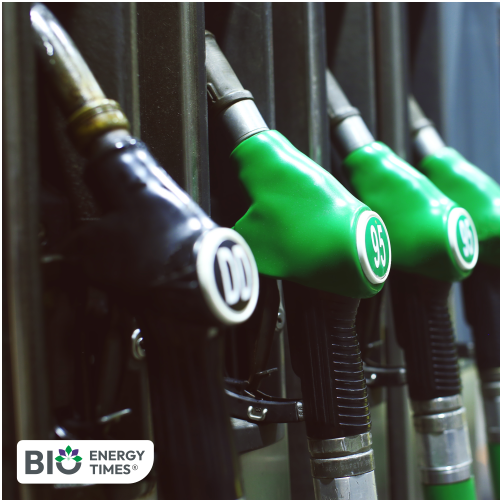The Indian Sugar & Bio-Energy Manufacturers Association (ISMA) and the Indian Federation of Green Energy (IFGE) have jointly urged the government to introduce a ‘National Ethanol Mobility Roadmap,’ which would define a clear path for ethanol blending beyond the current E-20. The organizations are also calling for GST rationalization on Flex-Fuel Vehicles (FFVs) and Smart Hybrid Vehicles, along with consumer incentives similar to those provided under the FAME scheme for Electric Vehicles (EVs), to help sustain the momentum of India’s ethanol revolution, as stated in a press release.
This appeal follows India’s achievement of E-20 ethanol blending five years ahead of schedule—a milestone that has drawn global attention and reinforced India’s commitment to sustainable mobility and energy security. The success highlights strong government leadership and the collaborative efforts of the sugar, bioenergy, and automotive sectors, positioning India as a leading example of global fuel transition.
Central to this progress is the sugar industry, which has invested approximately ₹40,000 crore to develop an ethanol production capacity of over 900 crore liters per year, putting it in a strong position to support blending beyond E-20. These investments have resulted in steady demand for sugarcane, faster clearance of cane arrears, improved cash flows for mills, the creation of millions of rural jobs, and significant research into high-yield feedstocks for sustainable ethanol production.
Deepak Ballani, Director General of ISMA, emphasized, “India’s sugar sector has met its ethanol blending targets ahead of time. To continue this revolution, policy continuity is crucial. With the ethanol industry providing 1,776 crore liters—well beyond the Oil Marketing Companies’ requirement of 1,050 crore liters—the sector is ready to support a 27% ethanol blend. However, without a clear roadmap beyond E-20, production capacities could remain underutilized, leading to idle investments, reduced mill revenues, and stagnated biofuel innovation. A phased, time-bound roadmap is essential to provide clarity on future blending milestones, vehicle adaptation standards, and advancements in biofuels like 2G/3G ethanol, Sustainable Aviation Fuel (SAF), and green chemicals.”
The appeal also highlights financial strain caused by the lack of an increase in ethanol procurement prices from B-heavy molasses and juice over the past three years. This has put pressure on growth and could undermine the progress made so far. A clear roadmap beyond E-20 is therefore necessary to ensure fair utilization of existing capacity and continued improvement in farmer incomes.
Dr. Pramod Chaudhari, President of IFGE, stated, “India’s ethanol success demonstrates the strength of the collaboration between industry and government. To sustain this momentum, it is crucial to announce a National Ethanol Mobility Roadmap for 2030 with clear targets beyond E-20. This will integrate vehicle adaptation standards, encourage advanced biofuels, and open pathways for green chemicals. Doing so will secure long-term investments, spur R&D in next-generation technologies, and solidify India’s position as a global leader in sustainable bioenergy.”
The joint appeal also underscores the importance of Flex-Fuel Vehicles and Smart Hybrids in India’s transition from traditional internal combustion engines to cleaner alternatives. These vehicles, capable of running efficiently on various ethanol blends up to E-100, could significantly reduce emissions and dependence on petroleum. However, the current GST rate of 43% on FFVs and Smart Hybrids remains a major obstacle, especially when compared to the much lower GST rate of 5% for EVs. With the right policy support, FFVs could help reduce India’s annual oil import bill by ₹50,000–₹75,000 crore, enhance energy independence under the Atmanirbhar Bharat vision, and keep the country on track to meet its Net Zero 2070 commitment.
Reaffirming its commitment, ISMA emphasized that the sugar and bio-energy industries remain central to supporting Indian farmers and the nation’s transition to a cleaner, self-reliant energy future. Both ISMA and IFGE stressed that ongoing policy support will turn the current enthusiasm for ethanol into long-term benefits, ensuring stable farmer incomes, promoting industry growth, and laying the foundation for a cleaner transportation future in India.














